Cristi Puiu
出生 : 1967-04-03, Bucharest, Romania
略歴
From Wikipedia, the free encyclopedia
Cristi Puiu (born 3 April 1967) is a Romanian film director and screenwriter.
Puiu's first interest in art was painting and in 1992, he was admitted as a student at the Painting Department of Ecole Superieure d'Arts Visuels in Geneva. After the first year he switched to film studies at the same school and graduated in 1996. After returning to Romania, Cristi Puiu started directing and writing his first films, generally enjoying critical success.
Description above from the Wikipedia article Cristi Puiu, licensed under CC-BY-SA, full list of contributors on Wikipedia.

Screenplay
Oana Pfifer, a young therapist visibly distracted by some unknown reasons, is slipping little by little inside the net of the questionnaire she is supposed to submit to her patient. Mihai Dumitru, Oana’s younger brother, worrying about the preparations of his anniversary and not realizing how inappropriate his demands are, is stuck in a story far bigger than what he can handle. Septimiu Pfifer, Oana’s husband, concerned about his health regarding a possible Covid-19 contamination, is vaguely listening to a strange story his ambulance colleague was caught inside long ago, while waiting for the next emergency call. Narcis Patranescu, an organized crime inspector, perturbed by the recent death of one of his colleagues, is on the grip of an unsettling dark story while interrogating a young woman during a funeral. Four short moments in time that are capturing the wanderings of a bunch of errant souls stuck at the crossroads of history.

Director
Oana Pfifer, a young therapist visibly distracted by some unknown reasons, is slipping little by little inside the net of the questionnaire she is supposed to submit to her patient. Mihai Dumitru, Oana’s younger brother, worrying about the preparations of his anniversary and not realizing how inappropriate his demands are, is stuck in a story far bigger than what he can handle. Septimiu Pfifer, Oana’s husband, concerned about his health regarding a possible Covid-19 contamination, is vaguely listening to a strange story his ambulance colleague was caught inside long ago, while waiting for the next emergency call. Narcis Patranescu, an organized crime inspector, perturbed by the recent death of one of his colleagues, is on the grip of an unsettling dark story while interrogating a young woman during a funeral. Four short moments in time that are capturing the wanderings of a bunch of errant souls stuck at the crossroads of history.
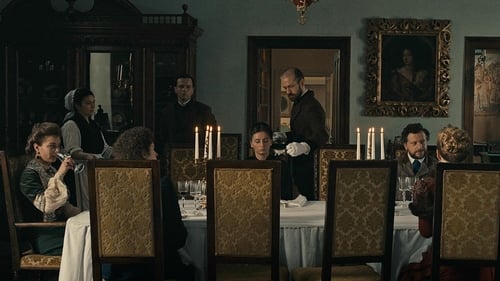
Writer
Among the guests who come to the mansion of aristocratic landowner Nikolai over Christmas are a politician, a young countess, and a general with his wife. They dine and discuss topics such as progress and morality. As the debate becomes more heated, cultural differences become increasingly apparent.

Director
Among the guests who come to the mansion of aristocratic landowner Nikolai over Christmas are a politician, a young countess, and a general with his wife. They dine and discuss topics such as progress and morality. As the debate becomes more heated, cultural differences become increasingly apparent.
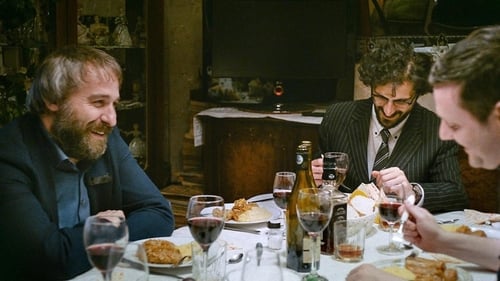
Writer
Back from a professional trip to Paris, a neurologist at the pinnacle of his career has to pick up his wife so that they can attend a family meal to commemorate his father, who died a year before. At his mother's flat, the guests are waiting for the priest to arrive while arguing about all kinds of things connected and unconnected with the world’s events and wars.

Director
Back from a professional trip to Paris, a neurologist at the pinnacle of his career has to pick up his wife so that they can attend a family meal to commemorate his father, who died a year before. At his mother's flat, the guests are waiting for the priest to arrive while arguing about all kinds of things connected and unconnected with the world’s events and wars.
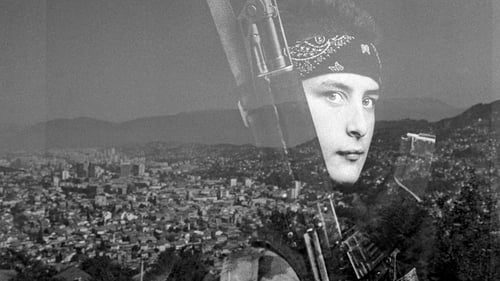
Writer
Thirteen European directors explore the theme of Sarajevo; what this city has represented in European history over the past hundred years, and what Sarajevo stands for today in Europe. These eminent filmmakers of different generations and origins offer exceptional singular styles and visions.

Director
Thirteen European directors explore the theme of Sarajevo; what this city has represented in European history over the past hundred years, and what Sarajevo stands for today in Europe. These eminent filmmakers of different generations and origins offer exceptional singular styles and visions.

Director
Three films based on Three Conversations by Russian writer and philosopher Vladimir Solovyov.The actors' 'exercises' develop into a minimalistic trilogy on cinema and literature, social and spiritual life, acting in film and in real life.
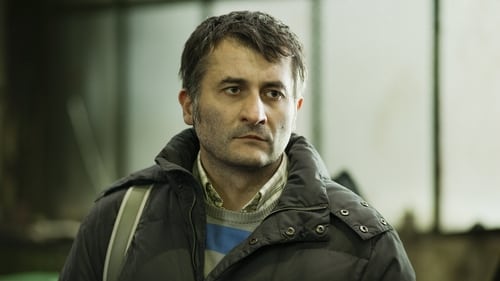
Viorel
離婚によって大きな精神的傷を負った42歳の孤独なヴィオレル。淡々とした日常生活を送る一方で、次第に心の闇に支配されていく男はついに衝撃の行動に走る。

Writer
離婚によって大きな精神的傷を負った42歳の孤独なヴィオレル。淡々とした日常生活を送る一方で、次第に心の闇に支配されていく男はついに衝撃の行動に走る。

Director
離婚によって大きな精神的傷を負った42歳の孤独なヴィオレル。淡々とした日常生活を送る一方で、次第に心の闇に支配されていく男はついに衝撃の行動に走る。

Art Direction

Writer
The plot focuses on the lives of the soon to be married Stefan, a German working in Romania for a wealthy and eccentric printing company owner, Nicu Iorga and his soon-to-be bride Brîndușa, who is Nicu's secretary.
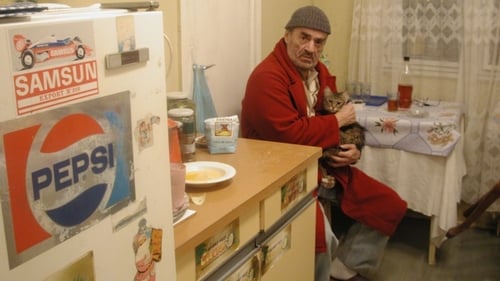
Writer
ある日突然、体に異変を感じはじめた一人暮らしの老人。体調不良の原因を突き止めて適切な処置を受けるため、いくつか病院をまわる羽目になるが...。

Director
ある日突然、体に異変を感じはじめた一人暮らしの老人。体調不良の原因を突き止めて適切な処置を受けるため、いくつか病院をまわる羽目になるが...。

Writer
The father, fired two years before retirement, wants to get rehired, requiring the support of his son. The action takes place in a restaurant in Bucharest.

Director
The father, fired two years before retirement, wants to get rehired, requiring the support of his son. The action takes place in a restaurant in Bucharest.

Writer
In this very black comedy about ill-suited neighbors united by marriage, Niki is a former colonel in the Romanian army whose daughter is married to the son of Flo, an aging Bohemian who is full of schemes for the “new” Romania. As the young couple prepares to emigrate to the U.S., Niki is obliged to interact with Flo, whom he finds totally unbearable.
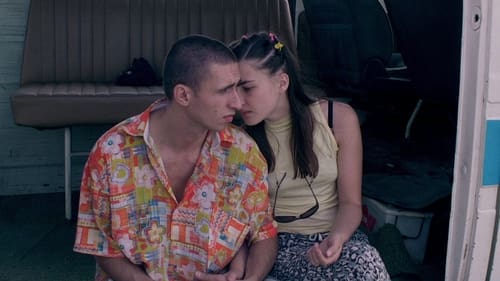
Writer
A young man from Constanța who has his own business aims to expand, but he doesn't have the resources.

Director
A young man from Constanța who has his own business aims to expand, but he doesn't have the resources.

Director
In the Romanian town of Craiova, five hundred elderly people are passing their days in a home, for which they pay with their paltry pensions. Every day looks the same, every activity is predictable. Even the people‘s complaints are part of the daily routine. One of the residents hopes in vain that a lottery ticket will bring him refuge. For six days, filmmakers Andreea Paduraru and Cristi Puiu try to get through to these people, who are carrying their whole past on their backs. To the question what the best days of their lives was, nobody can or wants to give an answer. Nearly everyone immediately starts about the day-to-day worries and problems in the home. Finally, one woman tells about her activities as head of the research department of the government of Ceausescu, with whom she once had an argument. Another resident recalls his time as a soldier in World War II and proceeds to the order of the day.

Screenplay
On the night of 5th to 6th of May 1950, DGSP, the political police of the communist regime, which was recently installed with the help of the Red Army, arrested in Bucharest 69 former politicians, generals, secretaries of state, ministers and prime ministers, in an operation later called »The Night of the Dignitaries«. Due to the specificity of the NKVD modus operandi, the former officials arrested that night didn’t receive any kind of information regarding the reason of their arrest. Moreover, in the next days they were sent directly to Sighetu Marmatiei prison, without a trial.

Director
On the night of 5th to 6th of May 1950, DGSP, the political police of the communist regime, which was recently installed with the help of the Red Army, arrested in Bucharest 69 former politicians, generals, secretaries of state, ministers and prime ministers, in an operation later called »The Night of the Dignitaries«. Due to the specificity of the NKVD modus operandi, the former officials arrested that night didn’t receive any kind of information regarding the reason of their arrest. Moreover, in the next days they were sent directly to Sighetu Marmatiei prison, without a trial.









